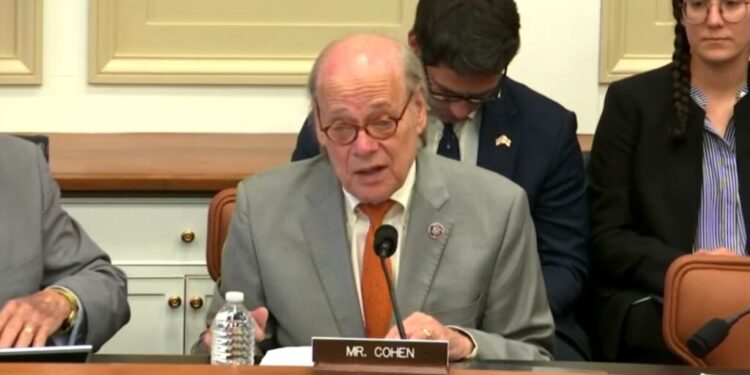Speaking at the Helsinki Commission, US Congressman Steve Cohen expressed disappointment over the stalled progress of the MEGOBARI Act in the Senate, suggesting that business interests may have played a decisive role in blocking the bill.
“Unfortunately, the Senate didn’t pass, and it looks like they’re not going to pass the MEGOBARI Act,” Cohen said. “There were some problems over there, and it might have been related to one particular business that’s building a port. One individual was able to apparently kill it.”
Cohen went on to sharply criticize Georgia’s ruling party, stating that “the Georgian Dream has become a Georgian nightmare.” He pointed to the daily mass protests in Tbilisi as a reflection of citizens’ frustration and emphasized that the struggle for democracy in Georgia carries lessons for the United States as well.
“Russia has occupied part of Georgia and would do so again if given the chance,” he warned. “Now, they have an ally there in the form of Mr. Ivanishvili, making it easier to undermine the country from within.”
Despite the setback, Cohen noted that the MEGOBARI Act had garnered unusual bipartisan momentum. “Mr. Wilson is right: there is an overwhelming bipartisan majority of Democrats and Republicans supporting the bill, which is quite remarkable and almost unheard of. The level of support on that side is truly impressive,” he said, underscoring the significance of such unity in Washington.
Cohen concluded by lamenting that, despite this broad consensus, a single actor’s influence appears to have derailed the legislation, highlighting the challenges of advancing foreign policy measures that face resistance from powerful interests.
The MEGOBARI Act—Mobilizing and Enhancing Georgia’s Options for Building Accountability, Resilience, and Independence—had been passed by the US House of Representatives in May 2025 with overwhelming bipartisan support, its goals being democratic reform in Georgia, countering perceived authoritarian influence, and sanctioning those blamed for obstructing Euro-Atlantic integration. Yet when it reached the Senate, the bill failed outright on September 5, after months of controversy and political pushback.
The background of the MEGOBARI Act traces to Georgia’s political unrest beginning in 2023 and through 2024. That period saw the adoption of a “foreign agents” law by the Georgian Dream-led government— legislation modeled in part on Russian statutes requiring NGOs and individuals receiving foreign funding to register as “agents.” Critics both inside Georgia and abroad claimed the law threatened civil liberties and battered the independence of the media and judiciary. Mass protests erupted after the law’s passage, and tensions rose still higher following Georgia’s 2024 parliamentary elections, which many opposition figures and observers said occurred in a context of democratic backsliding.














